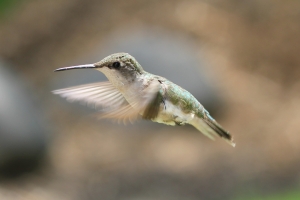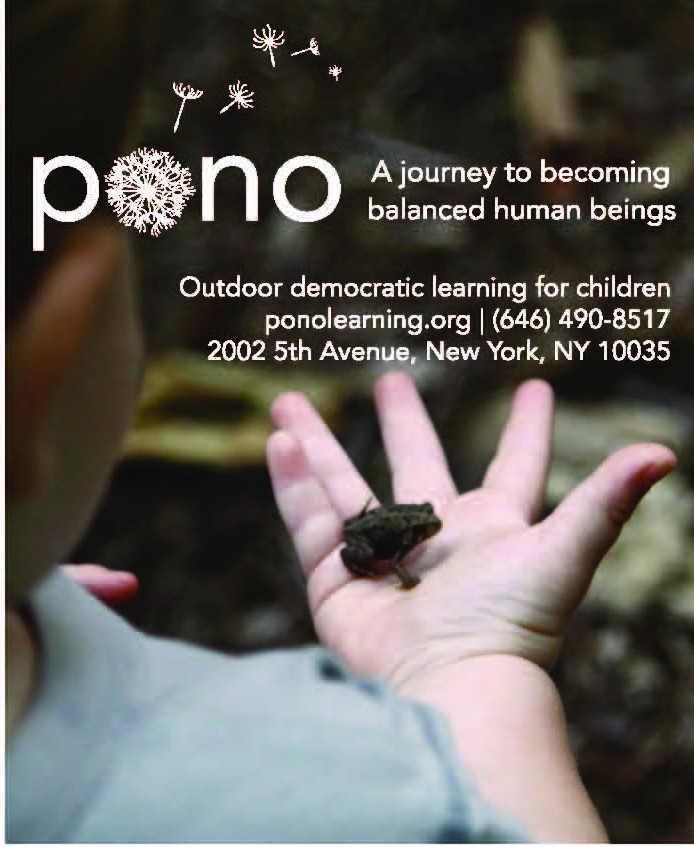Dad and I are alone together in the small family room off the kitchen. He’s sitting on the sofa, and I’m perched on an old stool, looking through the window at the green hills of the neighbouring farm. It’s a view I’ve seen a million times; a view that always calms me. I love the colours of that hill, brown after harsh days of summer, fresh green in spring, dotted with big cows and small ones, blurred by sheets of fierce rains and golden in the afternoon sun. Its shades and forms are always in flux, but never its lines: They are always the same.
Jessica Talbot is the author of Picaflor, and the article here is an excerpt of pages 222-225 of this book, used with permission. This excerpt details the visit to her childhood home during which Jessica learned the reason for her feeling of loneliness that had haunted her all of her life.
Attachment Parenting International (API) encourages all parents to identify and heal their childhood wounds as part of API’s First Principle of Parenting: Prepare for Pregnancy, Birth and Parenting.
Jessica’s story in Picaflor begins in Melbourne, Australia, where she worked as a child psychologist for 7 years after growing up in New Zealand. She is suffering from a crushing depression, and out of desperation to begin her life anew, she flies to South America and embarks on a journey of self-discovery that culminates in a realization of her childhood attachment wounds and eventual path of healing through Attachment Parenting. Today, Jessica lives in Buenos Aires, Argentina, with her husband and son.
I try to animate the space between us. “Lola is so cute,” I remark. Lola is [my stepmother] Cheryl’s 2-year-old granddaughter.
“Yes, she is.”
“I was watching her earlier collecting stones and stuffing her pockets with them. She’s so curious and calm. And that mop of blonde curls is fantastic.”
Silence. I watch him as he slowly turns his hands around each other. Do I ask? Is this the moment? I wait, my heart beating faster. I move my weight, ready to leave.
“I don’t really remember you as a child.”
“I don’t remember me, either.” As soon as I say it, I want to take it back.
“I see little Lola and how much love she receives, and how much attention she needs…”
“Yes, they need a lot.”
A heavy pause hangs.
“Dad, what was I like as a child?”
“You were very sweet, so quiet. Then you stopped talking for a while.”
“What do you mean?”
“We sent you away to Ireland with your nanny. A couple of weeks, that’s all.” He laughs nervously, and then continues. “When she brought you back, you had stopped talking. You hid under the table at day care and wouldn’t come out.”
“What happened?” I’m scared to change my tone, in case he stops.
“I don’t think it was anything serious. I think you were just confused by being there, the accents, new people. You were very shy. She told us you hid under a tree in the yard most of the time you were over there.”
My mind blurs with conflicting thoughts. I don’t know what to say.
“I know you think that stuff is important, being a psychologist…” His voice fades off.
“Those kinds of separations are hard on kids.” I try to stay curious, dispassionate. I feel sick inside.
“Well, much worse things happen to children.”
“I know, Dad. But it does have an effect. Those early years are the emotional base of everything that comes later.”
“We dumped you all over the place.”
Dumped, he said dumped. My mind jams on repeat. I look at him. He’s still focused on his hands, as if he’s absorbed in the lines of them. He looks old and sad.
“It’s okay, Dad. Thank you for telling me. I know a lot was going on back then.”
“Yes… That nanny, I think her name was Margaret, she loved you. And you loved her. She went back to Ireland not long after you got back from that visit. We got you a new one. Irish, too. You liked her as well.”
Margaret, I say to myself. I fight with a veil that’s draped over my memories. I know it’s perhaps too long ago, but I sense something pulling at the edges of my mind. Soft white skin on her arms. I can’t see her face. I wonder if that’s why I feel so calm and happy in the presence of Irish people. I picture [my Irish friend] Bree’s wry smile. I miss her.
“Then later Nana came over and took me and baby Jonny back to New Zealand, right?”
“Yes. You two were happy with Nana. So chubby and tanned by the time we saw you again.”
“I’ve seen the photos. She sure liked to fatten us up.”
“Ah, I’ve got to mow the lawns before the party; Cheryl will kill me.”
He springs up and darts past me, mumbling to himself. I can’t help smiling.
“See you, Dad,” I say after his retreating back.
So few words, but some powerful glimpses into years of unsaid things. I am lost in thought, slightly stunned, happy that we’ve talked.
I find myself back in my old bedroom, in front of my childhood dressing table. It’s made of golden oak with neat small drawers each side of the oval mirror. Large drawers give it a strong base below. I rummage through each drawer, my hiding places for precious things. I find shells, dulled by the years; little coloured stones, hair ribbons and clips, a few coins. Then some things from teen years: dark eye shadow, lipsticks borrowed from Mum. I’m surprised to find an empty packet of contraceptive pills. I wonder why the drawers have never been cleared out.
As I’m combing through the years, I go over my father’s words. I have more questions, but my need to ask them has faded away. His intent was clear, the illumination enough. I’m light with relief, content, as if the final piece of a complex puzzle had just been pushed carefully into place. I understand more fully the feeling that has been chasing me all my life. I can let go now.
Then I find a crumpled plastic bag. I open it and out into my hand slips a pony tail of my little-girl hair, rubber band still in place at the cut end. The sight hits me like a punch.
I sit on the bed, hair in my hands, and decide to try something I have never done before. It helped with [my former boyfriend] Daniel, so maybe it will help with me, the little me.
Hi little Jess. It’s me, grown up you. I want to talk to you about life. I want to help you feel less sad and lonely. I know you try very hard to behave well. I know you stay quiet so you won’t bother people. That’s okay, but you don’t have to be good all the time. I want you to know you can be angry, too. Mum and Dad love you, but they’re distracted by lots of things and don’t always show it. They haven’t been there enough for you, and you’re allowed to get mad about that. If you don’t let yourself feel all the different emotions, you will get stuck. It will hurt your insides and make you sick. You feel what you feel and that tells you important things. Don’t hide from it.
You are brave. I want you to stay curious and to open your eyes wide to the beautiful things in the world. You will find a lot of good people in your life. You just have to let them into your world. It’s going to be hard growing up, but I’m here for you. You are not alone. Talk to me when you need to. I’m always here. Try not to let the sadness eat you up. Go and enjoy playing in the park when it’s full of flowers. Get your little hands all messed up with pretty coloured paint. Play with your furry animal friends. Write your quirky stories and don’t worry about the spelling.
And please, know you will have lots of love in your life and lots of hugs. Be patient. Ask for what you want and believe you are special, because you are. I’m hugging you right now. You are loved.
As I say the last words, a flood of emotions and memories rushes through me. I pull back my arms from the imaginary hug. After sitting dead still for a long time, a calm lightness begins to pour in. With each measured breath I feel clearer, braver.
I tell myself I’m not that child anymore. She’s part of me, but now I can finally free myself from the patterns and thoughts that started in her mind and gained strength over the years that followed. I’m an adult now, who can construct every day a new truth for myself. It’s time to look forward, to shake free from the past.
Read more about Jessica’s journey to heal her childhood wounds in this API article, also included in this “Inspired Parents” issue of The Attached Family.


